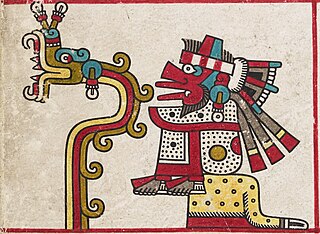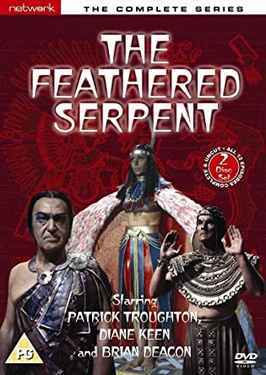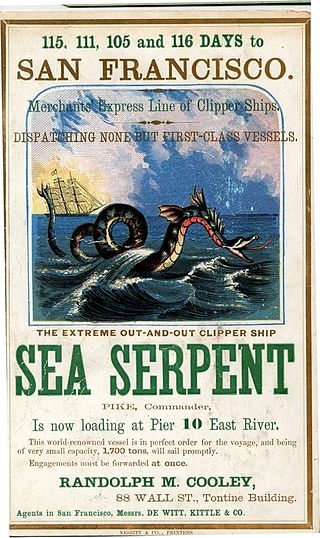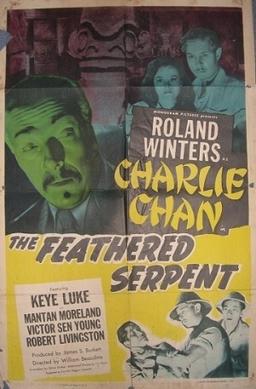Ulysses is one form of the Roman name for Odysseus, a hero in ancient Greek literature.
Captain is a rank or title for commander of a military unit, commander of a ship or other vessel, or leader of a unit or organization.

Post Captain is the second historical novel in the Aubrey–Maturin series by Patrick O'Brian, first published in 1972. It features the characters of Captain Jack Aubrey and naval surgeon Stephen Maturin, and is set in the early 19th century during the Napoleonic Wars.
Savoy is a historical country in western Europe, heart of the Savoyard state.
A conqueror is a person who conquers.

Time for Beany is an American children's television series, with puppets for characters, which was broadcast locally in Los Angeles starting on February 28, 1949, and nationally by the improvised Paramount Television Network from 1950 to 1955. It was created by animator Bob Clampett, who later reused its main characters for the animated series Beany and Cecil. The show won three Emmy Awards for best children's show.
David Britton was a British author, artist, and publisher. In the 1970s he founded Weird Fantasy and Crucified Toad, a series of small press magazines of the speculative fiction and horror genres. In 1976, Britton and Michael Butterworth co-founded the publishing house Savoy Books.

In English-speaking popular culture, the modern pirate stereotype owes its attributes mostly to the imagined tradition of the 18th-century Caribbean pirate sailing off the Spanish Main and to such celebrated 20th-century depictions as Captain Hook and his crew in the theatrical and film versions of J. M. Barrie's children's book Peter Pan, Robert Newton's portrayal of Long John Silver in the 1950 film adaptation of the Robert Louis Stevenson novel Treasure Island, and various adaptations of the Middle Eastern pirate, Sinbad the Sailor. In these and countless other books, films, and legends, pirates are portrayed as "swashbucklers" and "plunderers". They are shown on ships, often wearing eyepatches or peg legs, having a parrot perched on their shoulder, speaking in a West Country accent, and saying phrases like "Arr, matey" and "Avast, me hearty". Pirates have retained their image through pirate-themed tourist attractions, film, toys, books and plays.

The Black Corsair is an 1898 adventure novel written by Italian novelist Emilio Salgari. Set in the Caribbean during the Golden Age of Piracy, the novel narrates the exploits of Emilio Roccanera, Lord of Ventimiglia and his attempts to avenge his brothers, slain by the Duke Van Guld, now Governor of Maracaibo. The Lord of Ventimiglia, known throughout the Spanish Main as the Black Corsair, allies himself with some of the greatest pirates and buccaneers of the era: François L'Ollonais, Michael the Basque and Henry Morgan, vowing never to rest until he attains his vengeance.
Birds of a feather flock together is an English proverb.

Douglas Eugene "Gene" Savoy was an American explorer, author, religious leader, and theologian. He served as Head Bishop of the International Community of Christ, Church of the Second Advent from 1971 until his death. Rising to prominence as one of the premier explorers of Peru in the 1960s, he is best known for his claims to have discovered more than 40 lost cities in Peru and is credited with bringing to light a number of Peru’s most important archeological sites, including Vilcabamba, the last refuge of the Incas during the Spanish conquest, and Gran Pajaten, which he named but did not discover.

Quetzalcoatl is a deity in Aztec culture and literature. Among the Aztecs, he was related to wind, Venus, Sun, merchants, arts, crafts, knowledge, and learning. He was also the patron god of the Aztec priesthood. He was one of several important gods in the Aztec pantheon, along with the gods Tlaloc, Tezcatlipoca and Huitzilopochtli. The two other gods represented by the planet Venus are Tlaloc and Xolotl.
Serpent or The Serpent may refer to:

The Feathered Serpent is a British children's serial costume drama television series made for ITV by Thames Television, set in pre-Columbian Mexico and starring Patrick Troughton as the scheming High Priest Nasca. It is an adventure story about good and evil. Two series were first broadcast in 1976 and 1978.

Sea Serpent was an 1850 extreme clipper that sailed in the San Francisco trade, the China trade, and the transatlantic lumber trade. She was one of the longest lived clippers, with a service life of 36 years and 5 months.

The Feathered Serpent is a 1948 mystery film, the fifth of six in which Roland Winters portrayed Charlie Chan. It is the only Chan film which featured both Keye Luke and Victor Sen Yung together. Luke had been cast in the later Warner Oland Chan films while Yung appeared primarily in the Sidney Toler Chan movies. This was Yung's last Chan movie. Luke appeared in one more with Roland Winters, the last of the Chan films, Sky Dragon (1949).
The Feathered Serpent is a 1934 British thriller film directed by Maclean Rogers and starring Enid Stamp-Taylor, Tom Helmore and Moore Marriott. A reporter faces a race against time to clear an actress accused of murder. It is based on the 1927 novel The Feathered Serpent by Edgar Wallace.
Coatl is a Nahuatl word meaning "serpent". It is the name of one of the day-signs in the Aztec calendar. It may also refer to:

The Pathfinder is a 1952 American adventure historical western film directed by Sidney Salkow and starring George Montgomery, Helena Carter and Jay Silverheels. It is based on the 1840 novel The Pathfinder by James Fenimore Cooper and was produced by Sam Katzman for Columbia Pictures.









